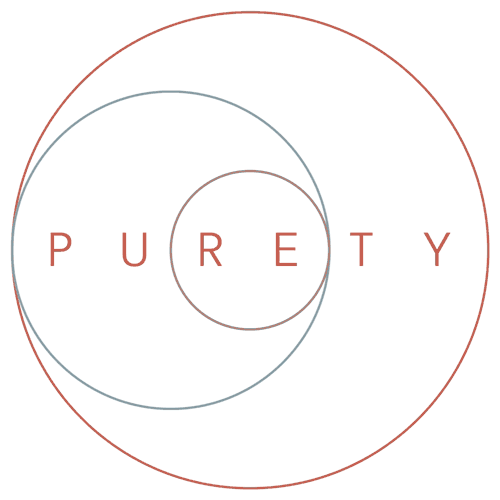Why You Should Choose L-Ascorbic Acid Over Vitamin C Derivatives in Your Skincare Routine | Puretyclinicshop.com
When it comes to skincare, particularly in the quest for glowing, youthful skin, Vitamin C stands out as a superstar ingredient. It’s known for its ability to brighten the skin, reduce the appearance of fine lines, and protect against environmental damage. However, not all Vitamin C products are created equal, and as a savvy skincare shopper, it’s crucial to understand the difference between the purest form of Vitamin C, known as L-ascorbic acid, and its less effective counterparts, Vitamin C derivatives.
What is Vitamin C Derivatives?
Vitamin C derivatives are chemically altered versions of Vitamin C. They are formulated to be more stable and less likely to degrade when exposed to light, air, or heat. Some common Vitamin C derivatives you might come across include Magnesium Ascorbyl Phosphate (MAP), Sodium Ascorbyl Phosphate (SAP), and Ascorbyl Palmitate. These derivatives are used in skincare products because they are more shelf-stable and less prone to oxidation, which means they have a longer shelf life and can be more appealing to manufacturers and retailers.
The Problem with Vitamin C Derivatives
While the stability of Vitamin C derivatives can sound like a good thing, there’s a significant downside. These derivatives need to undergo a conversion process within the skin to become active. Only after this conversion can they start to offer the benefits that pure Vitamin C provides naturally. Unfortunately, this conversion isn’t always efficient. In some cases, only a small percentage of the derivative is converted to active Vitamin C, which means you’re not getting the full benefits of this powerful ingredient.
Moreover, the efficacy of Vitamin C derivatives largely depends on factors such as the formulation, concentration, and your skin’s ability to convert the derivative into active Vitamin C. This variability can lead to inconsistent results, leaving you with a product that might not deliver on its promises.
Why L-Ascorbic Acid Is Superior?
L-ascorbic acid is the purest and most potent form of Vitamin C, and it doesn’t need any conversion to be effective. When you apply L-ascorbic acid to your skin, it gets to work immediately, delivering all of its powerful antioxidant benefits. This pure form of Vitamin C can neutralize free radicals, which are unstable molecules that can damage your skin cells and accelerate the aging process. By using L-ascorbic acid, you are giving your skin the most direct access to Vitamin C’s benefits, ensuring that you’re getting the maximum impact from your skincare routine.
L-ascorbic acid is particularly effective in boosting collagen production, which is essential for maintaining the skin’s elasticity and firmness. It also helps to fade hyperpigmentation and brighten the complexion by inhibiting the production of melanin, the pigment responsible for dark spots and uneven skin tone. Furthermore, L-ascorbic acid enhances the skin’s natural healing process, making it an excellent choice for those looking to improve the overall health and appearance of their skin.
Don’t Be Fooled by Shelf Life
One of the main reasons Vitamin C derivatives are often used in skincare products is their longer shelf life. L-ascorbic acid is notoriously unstable and can degrade quickly when exposed to light, air, or heat. However, this doesn’t mean that you should settle for a less effective product just because it lasts longer on the shelf. The truth is, the benefits of L-ascorbic acid far outweigh the convenience of a longer shelf life.
To preserve the potency of L-ascorbic acid, many skincare brands package it in dark, airtight containers or in powder form that can be mixed with other products just before application. These packaging solutions help to minimize the exposure of L-ascorbic acid to environmental factors that can cause it to degrade, ensuring that you get the most out of your product.
Recommended Products: Phyto-C Skincare
If you’re looking for high-quality skincare products that contain L-ascorbic acid, Phyto-C Skincare offers some excellent options. Their products are formulated to provide your skin with the purest form of Vitamin C, ensuring that you receive all the benefits we’ve discussed. For instance, the Phyto-C Serum Twenty and Phyto-C SuperHeal O-Live Gel are great choices. These serums are known for their potency and effectiveness in delivering Vitamin C directly to your skin, helping to brighten your complexion, reduce the appearance of fine lines, and protect your skin from environmental stressors.
You can explore these products and more at Purety Clinic Shop. By choosing Phyto-C Skincare, you’re making a wise investment in your skin’s health and appearance, opting for the most effective form of Vitamin C available.
The Bottom Line: Choose L-Ascorbic Acid for Maximum Results
When it comes to Vitamin C in skincare, L-ascorbic acid is the gold standard. While Vitamin C derivatives may seem like a convenient option due to their stability and longer shelf life, they simply can’t match the effectiveness of pure L-ascorbic acid. The next time you’re shopping for a Vitamin C serum, take a close look at the ingredients list. If you see a derivative like Magnesium Ascorbyl Phosphate or Sodium Ascorbyl Phosphate, remember that you’re not getting the purest, most effective form of Vitamin C.
Instead, look for products that contain L-ascorbic acid, and make sure they’re packaged in a way that protects the product from light, air, and heat. Your skin will thank you for it, as you’ll be providing it with the most potent form of Vitamin C available, ensuring that you get the maximum benefits in terms of brightness, anti-aging, and overall skin health.
In the end, the effectiveness of your skincare routine depends on the quality of the ingredients you use. Don’t settle for less when it comes to Vitamin C. Choose L-ascorbic acid and enjoy the full spectrum of benefits that this powerful antioxidant has to offer. Your skin deserves the best, and with L-ascorbic acid, that’s exactly what you’ll get. Click this link to explore: Skin Care – PuretyClinicShop








